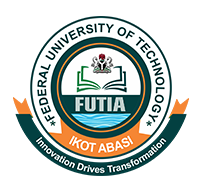Basic Admission Requirements and Expected Duration of the Programmes
Candidates can be admitted into any of the degree programmes in Science by one of the following three ways:
- The Unified Tertiary Matriculation Examination (UTME)
- Direct Entry
- Inter-University Transfer
UTME Entry Mode
The minimum academic requirement is credit level passes in five (5) subjects at O’Level innationally recognised examination including English Language, Mathematics and three other Science subjects which are relevant to the intended programme at not more than two sittings. In addition, an acceptable pass in the Unified Tertiary Matriculation Examination (UTME) with relevant subject combination is also required for admission into 100 Level.
Direct Entry Mode
Candidates seeking admission into a programme in Science through Direct Entry must havepasses at GCE ‘A’ Level/IJMB or its equivalent in a minimum of two (2) Science subjects relevant to the intended programme to be considered for admission into 200 Level. This isin addition to fulfilling the requirement of a minimum of credit level passes in five (5) relevant subjects at ‘O’ Level as indicated above.
Inter-University Transfer Mode
Students can transfer into 200-Level courses provided they have the relevant qualifications.Universities are to certify that students meet the minimum requirements for the Inter- University Transfer.
Minimum Duration
The minimum duration of science programmes is four (4) academic sessions for candidates whoenter through the UTME Mode. Direct Entry candidates admitted into the 200 level of their programmes will spend a minimum of three (3) academic sessions.



